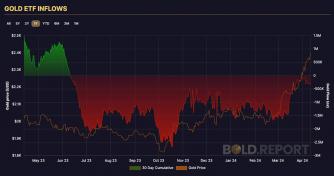Calorie labels on menus and food packaging lead to people eating one less crisp than usual – but the effects can still be “potentially meaningful”, according to a new review.
Evidence from 25 studies suggests calorie information led to people selecting and purchasing food that had an average of 1.8% fewer calories.
In a 600 calorie meal, this would equate to 11 calories – or about two almonds, or a singular Pringle crisp (which has around 10 calories, according to makers, Kellogg’s).
This may not seem like a lot, but authors of the Cochrane Review said they can “now say with considerable confidence” that calorie labelling does have a “small but potentially meaningful effect on people’s food choices”.
Mandatory calorie labelling on menus in large cafes, restaurants and takeaways with more than 250 staff, has been obliged by UK law since 2022.
A government report previously estimated that 90% of 20 to 40-year-olds in England would gain up to 9kg over 10 years, and that reducing daily energy intake by 24 calories per day – roughly 1% of the recommended intake for adults – would prevent this increase.
The new review looked at evidence from studies involving more than 10,000 participants from high-income countries including Canada, France, the UK and the US.
Senior author of the review Dr Gareth Hollands said despite previous uncertainty around the effect calorie labelling would have, the findings show it is likely there will be “a real, albeit modest, effect” on the health of the UK population.
Professor Keith Frayn, from Oxford University, added that calorie labelling could be a “useful tool” if used in conjunction with other measures, to help people reduce calorie consumption.
“The true impact of calorie labelling over time is likely, if anything, to be greater than observed here,” he said.
‘Calorie labelling remains contentious’
However, concerns remain about the possible impact of calorie labelling on people at risk of eating disorders, with the review noting a lack of data in the studies on possible harms, including mental health impacts.
“Calorie labelling to reduce the calories that people consume remains somewhat contentious, both in terms of whether it has any effect, and whether potential benefits outweigh potential risks or harms,” Dr Hollands added.
“Labelling may have a useful role, ideally alongside a broader set of approaches that place more onus on industry rather than individuals, such as taxes, marketing restrictions and reformulation.
“However, we should not expect miracles, and any implementation of calorie labelling must balance the many potential positive and negative impacts of such policies.”
Last November, a study published in the journal Nature Human Behaviour, suggested that labelling made no difference at all to how many calories people brought or ate.
Read more from Sky News:
SpaceX’s 400ft Starship ‘lost’ less than nine minutes into test flight
Age checks for pornography sites must be in place by July – Ofcom
Follow our channel and never miss an update
The eating disorder charity Beat told Sky News at the time that the study proved the “dangerous and ineffective policy” cannot be justified.
Beat’s director of external affairs Tom Quinn said calorie labelling is “so damaging to people with eating disorders that it cannot be justified”.
He has previously called on the government to scrap the policy, adding: “For those with eating disorders, calorie labelling can worsen feelings of anxiety and stress and lead to harmful behaviours such as binge eating, exercising excessively or restricting food.”
The Department of Health and Social Care has previously Sky News it is funding research on the impact of the labelling policy on people with eating disorders and expects findings in October 2025.
“This government [is] working to tackle the obesity crisis, including by restricting junk food advertising on TV and online and limiting school children’s access to fast food,” a Department of Health and Social Care spokesperson said.




